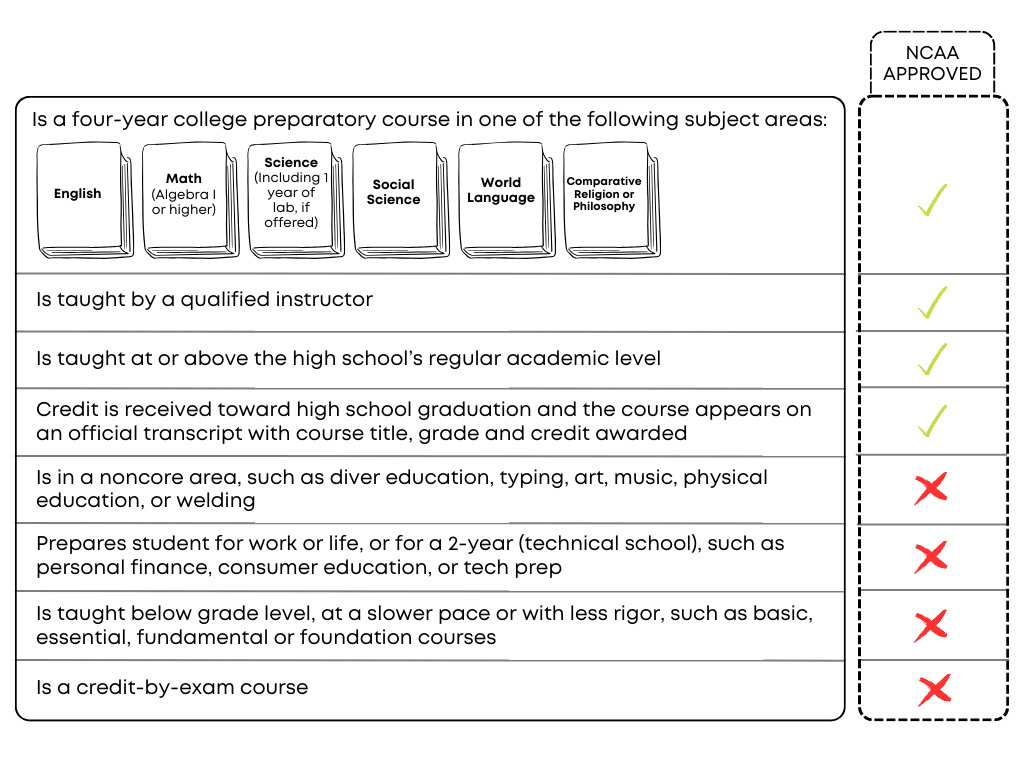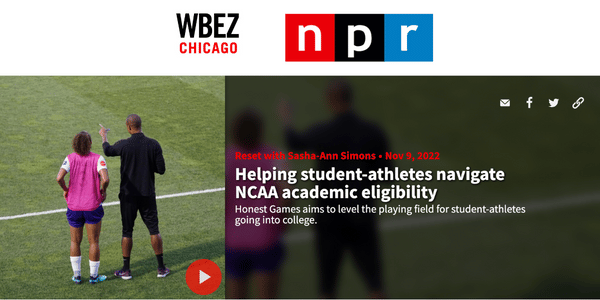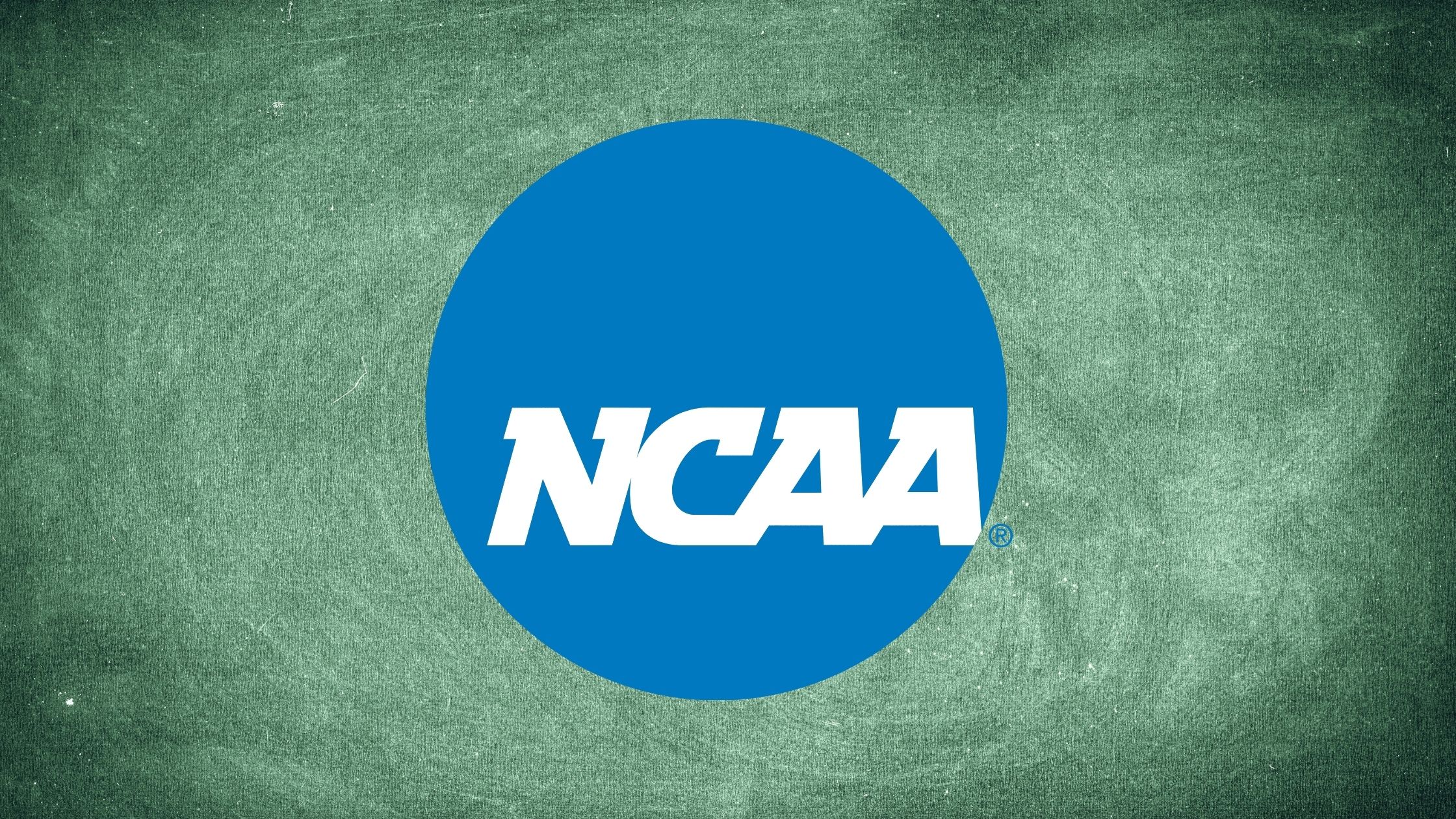Academic Eligibility 101 – Understanding the Academic Requirements for College Sports
Published on Jun 24, 2025

What Does Academic Eligibility Mean?
Academic eligibility is the status that determines whether a student will be able to practice and compete in varsity sports at the collegiate level – and is typically determined using some combination of a student-athlete’s high school coursework, GPA, and in some cases class rank.
What is the NCAA Eligibility Center?
The NCAA Eligibility Center (previously known as the NCAA Clearinghouse) is responsible for determining the academic eligibility and amateurism status for all Division I (DI) and Division II (DII) student-athletes. The Eligibility Center is responsible for holding students and universities accountable to the by laws created by the NCAA DI/DII higher ed member institutions, which is why initial eligibility rules for these divisions are different.
The NCAA Eligibility Center includes:
- 200,000 college-bound student-athlete accounts annually
- 100,000 Certification accounts
- 8,000 international students
- 20,000 high school calls
- 1,100 member schools and universities
- 32,000 high schools, with 29,200+ cleared
Initial eligibility is based on high school academic progress and completion and dictates whether a student can participate in NCAA DI/DII athletics or if they can take an athletic scholarship. Requirements include:
- Graduate from high school
- Complete a minimum number of NCAA-approved high school courses, or NCAA Core Courses
- Earn a minimum required grade-point average in core courses, known as the NCAA Core GPA
- Request final amateurism certification from the NCAA Eligibility Center
The NCAA does not set initial-eligibility requirements for athletes looking to compete at the DIII level, however, DIII colleges and universities have their own admission standards.
Student-athletes looking to compete at the NCAA DI or DII levels must register with the NCAA Eligibility Center at eligibilitycenter.org. It’s recommended that students complete a certification account by the end of their sophomore year. Even if students are undecided about college-level competition, they can still sign up for a complimentary “undecided” account to obtain their NCAA Identification number.
What is Needed to be Academically Eligible to Play NCAA Sports?
Academic eligibility is determined by the NCAA Eligibility Center using a combination of a student-athlete’s high school coursework and GPA.
Freshman student-athletes entering NCAA DI and DII programs must complete 16 units (32 semesters) of NCAA-approved high school core courses. These courses must be completed on a specific timeline and in specific subject areas. The NCAA also requires a minimum Core GPA to qualify, which is based on the grades earned in each student-athlete’s 16 NCAA-approved courses.
The minimum Core GPA needed to be eligible for DI sports is a 2.3 GPA and at the DII level, a 2.2 GPA is needed in order to be eligible.
Since 2020, the NCAA has waived standardized test requirements for those entering college in Fall 2020 through Fall 2023, now standardized tests will no longer be required to meet NCAA Initial Eligibility for all students, effective immediately.
There are no NCAA course requirements for NCAA DIII eligibility as you must simply meet the admissions standards for the institution you wish to attend to compete with full eligibility in accordance with the NCAA academic requirements.
What are NCAA Core Courses and How Do They Count Towards Academic Eligibility?
Most high schools in the U.S. have a list of approved core courses by the NCAA. These approved courses allow the NCAA to evaluate an athlete’s eligibility based on their academic classwork and grades. Only courses that appear on a high school’s list of NCAA-approved core courses will count toward the 16 core course requirement. The NCAA requires core courses to:
- Be a four-year college preparatory course in one of these subject areas:
- English
- Math (Algebra I or higher)
- Natural/physical science
- Social science
- Foreign language
- Comparative religion or philosophy.
- Be taught at or above your high school’s regular academic level.
- Receive credit toward high school graduation and appear on an official transcript with course title, grade and credit awarded.
Below is a helpful guide for evaluating courses to see if they follow the NCAA core course requirements. 
Additionally, for students looking to compete at the NCAA DI level, 10 of those 16 core courses must be completed prior to their 7th semester of high school – and 7 of those 10 core courses must be in the subject areas of English, Math, or Natural/Physical Science. Once a student begins their 7th semester, any course that is needed to meet the NCAA 10/7 requirement (also known as the “NCAA 10/7 Rule”) cannot be replaced or repeated. Students with solely international academic credentials (including Canada) are not required to meet the 10/7 requirement.
It’s important to know that not all high school classes that count towards high school graduation will count as NCAA core courses. Schools submit course names through the NCAA High School Portal and receive one of three responses:
- Approved By Title Alone
- Denied
- Additional Information Needed (meaning detailed documentation is required to receive approval)
HONEST GAME HELPS SCHOOLS ENSURE THEIR NCAA PORTAL IS UP-TO-DATE
What is the Difference Between Retaking a Class and Credit Recovery?
If a school allows a student to repeat a course covering the same curriculum, time frame and teaching/classroom environment, and they subsequently earn a higher grade, the NCAA will count the higher grade and credit towards the student’s 16 core course requirements. For many schools, both grades will be taken into account to calculate the GPA. The NCAA will only take the better of the two grades.
This is different from a student taking a course via a “Credit Recovery” platform or learning module. Some school platforms or modes of non-traditional Credit Recovery have been deemed by the NCAA as not meeting NCAA core requirements. A note such as “Credit Recovery coursework from this school/program does not meet NCAA core-course legislation” will be noted on the high school’s NCAA Eligibility Center portal. A credit recovery grade earned in a non-approved for NCAA course will neither count towards the 16 required NCAA Core units nor will it count towards the NCAA Core GPA.
Know the Difference Between School GPA and NCAA Core GPA
The NCAA Eligibility Center calculates its own special GPA, called the “NCAA Core GPA”, when they are reviewing incoming college student-athletes for qualifier status at the NCAA DI or DII level.
NCAA Core GPA is based on the grades earned in the 16 NCAA-approved core courses that are completed in high school (32 semesters). If a student completes more than 16 NCAA- approved core courses, the NCAA will choose the best grades earned in the 16 NCAA-approved courses that meet the subject area requirements.
How to Calculate NCAA Core GPA
The NCAA Eligibility Center will calculate a student’s NCAA Core GPA as a weighted GPA only if their high school uses a weighted GPA and has updated its NCAA High School Portal to represent their current grade scale. Any Honors or AP courses taken will need to be registered properly by the school in order for students to earn extra points.
What is the NCAA 10/7 Rule and How Does it Work?
NCAA initial-eligibility rules require college-bound student-athletes looking to compete at a DI or DII school must complete 16 NCAA-approved core courses at their high school(s) by the time they enroll in college.
For students looking to compete at the DI level, the NCAA requires 10 of those 16 core courses to be completed by the start of the student’s 7th semester of high school. Specifically, 7 of those 10 courses must be in the subject areas of English, Math, or Natural/Physical Science.
Once senior year starts, grades achieved in the 10/7 courses must be used in calculating the student’s NCAA core GPA and cannot be replaced or repeated, so the term “locked in” is often used.
If a student-athlete does not meet the 10/7 requirement by the mandatory deadline, they will be deemed an NCAA DI Non-Qualifier and will be ineligible to play at a DI school right after high school.
When a final official transcript with proof of graduation are submitted for a student-athlete’s Eligibility Center account, that account becomes “Ready to Process—Final.” This means the student’s account is ready to be reviewed by Eligibility Center staff for an attempt at a final certification decision (needed for a recruit to play once they reach their NCAA college campus).
What are the NAIA Academic Eligibility Requirements?
Prospective student-athletes looking to continue their athletic and academic pursuits at a National Association of Intercollegiate Athletics (NAIA) school have different eligibility standards they must meet from those we’ve outlined in the NCAA academic requirements.
The NAIA recently updated the requirements stating that incoming freshmen can now become NAIA eligible without a test score or class rank – provided they meet the following minimum GPA (on a 4.0 scale), which has shifted from a previous set of rules:
- 2.3 GPA for recent graduates
- 2.8 GPA for students who have completed their 7th semester (compared to a 2.5 in previous rules)
- 3.3 GPA for students who have completed their junior year (compared to a 3.0 in previous rules)
Students who do not meet the 2.3 minimum GPA requirement upon graduation may still become eligible to compete at an NAIA school by meeting 2 of the following 3 criteria:
- Minimum test score of 18 on the ACT or 970 on the SAT
- Achieve a minimum overall high school GPA of 2.0 (on a 4.0 scale)
- Graduate in the top half (50%) of their high school class
What are the Academic Requirements for Junior Colleges?
Governed by the National Junior College Athletic Association (NJCAA), junior colleges or JUCOs are what many people refer to as “community colleges” – and the academic eligibility for JUCOs differs from NCAA and NAIA in several key respects.
For one, whereas the NCAA’s division-based eligibility requirements are consistent across member schools, JUCOs are allowed to set their own standards. Typically, these standards are easier to meet than those of the NCAA/NAIA, and students who fall short are sometimes offered special classes to meet the necessary qualifications post-enrollment.
What Makes a Student-Athlete Ineligible?
If a student-athlete does not meet the minimum academic requirements set out by the NCAA, NAIA, or NJCAA – they will not be able to practice, compete or receive an athletic scholarship.
Best Academic Eligibility Practices for Schools
High school athletic directors and counselors are heavily involved in assisting college-bound student-athletes with the academic eligibility process. Maintaining your school’s NCAA and NAIA accounts to ensure they are accurate and up to date is extremely important. Both conferences allow for only two contacts at each school to be listed as the primary and secondary contacts on the NCAA Eligibility Center High School Portals.
- Maintain your school’s list of NCAA-approved core courses to ensure it is accurate and up-to-date.
- It is recommended that you update your NCAA list of core courses and grade scale annually after your school determines new course offerings, but before you begin registering students for courses.
- Ensure that any non-traditional programs (ESL/ELL, credit recovery, virtual or online courses, etc.) offered at your school have been reviewed.
- Submit documentation for courses that have been marked RC8 – requires additional documentation to be approved for NCAA credit.
- Validate student transcripts and registration fee waivers for eligibility review and account creation via the High School Portal.
- Respond to NCAA requests for more information from the NCAA Eligibility Center as needed.
- Respond to NCAA alerts regarding specific student eligibility concerns.
- Be familiar with the information on students with documented Education-Impacting Disabilities (EID), which can be found on the NCAA High School Portal.
- Continue to emphasize the importance of academic performance at every step of the student’s high school career – starting in 9th grade, it all counts!
- Develop a method to best identify student-athletes and their interest in college athletics.
Role of the Student-athlete
It is the responsibility of the student-athlete to understand the academic requirements and make sure they are on track to meet those requirements with the help of their high school guidance counselor and athletic director in addition to school administrators.
Steps include planning strategically and proactively ahead, taking the proper high school classes and taking them seriously and protecting their amateur status.
As the industry leading on-demand academic compliance solution, Honest Game technology helps educators ensure their schools and student-athletes are tracking with NCAA & NAIA requirements for college athletics.
Find out how Honest Game takes the guesswork out of academic eligibility for college sports.
Contact us today to learn more about how our technology can prepare your student-athletes to be eligible and ensure you are updated with the NCAA/NAIA compliance within your athletic department.



